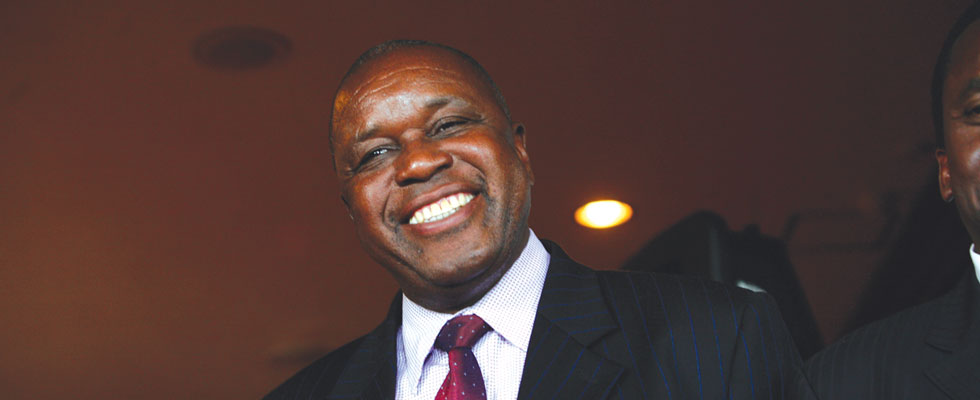
PRESIDENT Robert Mugabe last week announced a new Cabinet largely made up of people who had served in his previous Executive. NewsDay chief reporter Everson Mushava (ND) caught up with Christopher Mutsvangwa (CM), the new deputy minister of Foreign Affairs, to gain insight on his new role vis-à-vis Zimbabwe’s strained relations with Western countries.
Below are excerpts of the interview.
ND: Hon Mutsvangwa, you have taken over as Foreign Affairs deputy minister at a time Zimbabwe is battling to mend relations with the West that has maintained trade and travel restrictions on top party members, do you have any re-engagement plans with the West?
CM: Their position has become untenable especially after the recent elections which Sadc, Africa and the rest of the world have described as free and credible and reflected the will of the people.
It means that as the rug has been dragged from under their feet, they have to grope for a new policy.
We are very anxious that we quickly build our relations with them. We will spare no effort in exploring all avenues at improving our relations with the traditional partners in the European Union and in Washington.
We hope that London can play a more positive role. They have an obligation to move from a post-colonial mindset to an equal-partner mindset.
Only London can help the situation so that we can move onto a new page.
- Chamisa under fire over US$120K donation
- Mavhunga puts DeMbare into Chibuku quarterfinals
- Pension funds bet on Cabora Bassa oilfields
- Councils defy govt fire tender directive
Keep Reading
We will also be pursuing very vigorously engagement with emerging economies of the Brics (Brazil, Russia, India, China and South Africa). They have become sources of capital, in some instances, at a much larger scale than the traditional co-operating partners. China is a biggest exporter of capital.
Even the British, to maintain the status of London as a world global financial centre, spend more time in Shanghai, courting Chinese capital.
So, we hope the same example that the Brics are showing, courting Chinese capital, they can also be gracious to let Zimbabwe court the same capital as they do. The West is busy engaging China to their own benefit and Zimbabwe should be allowed to do the same.
We also hope that Belgium, which has a direct interest in our diamond industry, will show its influence. They promised that if elections are free and fair, sanctions will be lifted. We hope that Belgium will assert itself. It is like a relationship made in heaven. We have the diamond and they have the market. This is a relationship moved by economic interest. It is a multi-million dollar engagement. It just has to happen and we hope Britain will be gracious.
ND: Sadc has played a central role in resolving political disputes in Zimbabwe, but Mugabe at one time threatened to pull out of Sadc. Do we have special plans for Sadc engagement?
CM: Sadc has been very supportive of Zimbabwe. We have a new African narrative and we want Zimbabwe to play its role in the new African renaissance. We want to build Zimbabwe as a business destination in Africa and this can only be successful with a proper engagement of Sadc countries, which we will continue to do. ND: America, Europe and even China, have a clear policy on Africa, Zimbabwe included. Do you see Zimbabwe following suit and formulating special position papers on its engagement with the respective countries?
CM: Yes, we were initially on the defensive, fighting sanctions, but now we are over the hill. We need to be more proactive, we have to move from being defensive to being proactive. We have to work on a white paper on Zimbabwe’s foreign policy which will reflect our economic interests because economic and business interests are the drivers of global relations.
ND: The international community has been shunning the country as an investment destination due to the country’s indigenisation law which they say is not clear and does not respect property rights. Should we expect a change of focus on the policy to attract foreign direct investment? CM: The indigenisation policy is the foundation. We need to domesticate our resources so that people will come to Harare to negotiate some business deals. Prior to that, people would go to Sydney, Johannesburg, London and so on, to discuss about Zimbabwean assets.
The indigenisation policy has done well, it now makes Harare the focal point of interaction about those assets.
Obviously, we need to fine tune the indigenisation policy. We need to tailor-make it for various industries in the interest of how we can attract foreign direct investment into Zimbabwe.
It is a question of building upon the indigenisation platform and attracting foreign capital to Zimbabwe. And as we do so, we monitor the conditions under which we do it. It’s a dynamic process.
Our foreign policy will be that ministries will work with each other to collaborate on the programme and make Zimbabwe an investment destination.
Sanctions were premised on the concept of denying capital to Zimbabwe and we have to push hard to attract foreign investment more than before. That is the only thing that is missing. Our foreign policy will be premised on delivering prosperity to the people of Zimbabwe.







